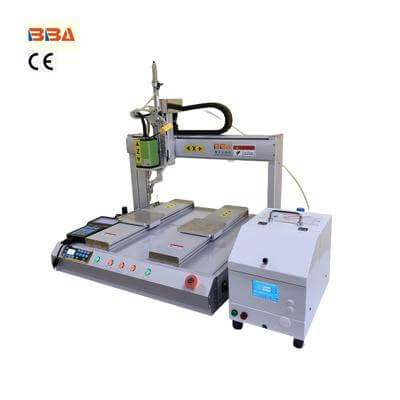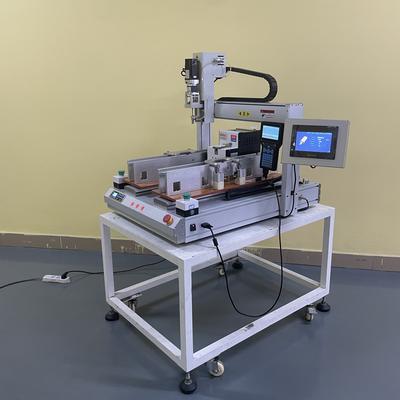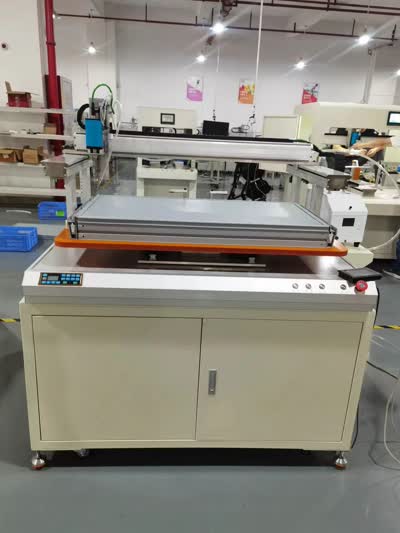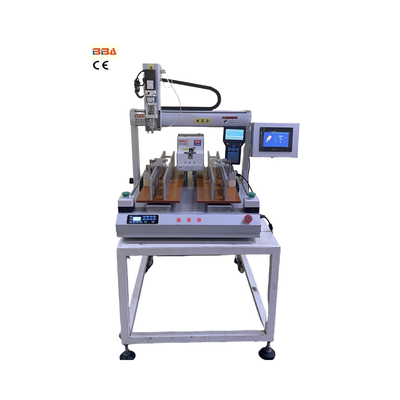Modern Screw Feeder Machines: High-Speed Precision for Industrial Automation

Speed and Accuracy in Modern Screw Feeder Machines
In today’s fast-paced manufacturing landscape, the demand for precision and efficiency has never been greater. Modern screw feeder machines have emerged as indispensable tools in assembly lines, electronics production, automotive manufacturing, and beyond. These devices blend cutting-edge technology with robust engineering to deliver unmatched speed and accuracy, addressing the evolving needs of industrial automation.
The Role of Screw Feeders in Automation
Screw feeder machines automate the process of driving screws into products, eliminating time-consuming manual labor. By ensuring consistent torque and placement, they reduce human error and enhance production throughput. Industries relying on high-volume outputs, such as consumer electronics and automotive parts, benefit from their ability to maintain tight tolerances while operating at rapid cycles. This precision minimizes material waste and rework, translating to cost savings and improved product quality.
Technological Advances Driving Performance
Modern screw feeders leverage advanced technologies to optimize speed and accuracy. Key innovations include:
- Smart Sensors: Integrated sensors detect screw orientation and feed status in real time, preventing jams and misfires.
- Adaptive Control Systems: AI-driven algorithms adjust torque and speed based on material type, screw size, and environmental conditions.
- Modular Design: Customizable components allow for quick adaptation to different screw types and production requirements.
Achieving Balance Between Speed and Precision
One of the most significant challenges in screw feeding technology is maintaining accuracy at high speeds. Older models often sacrificed precision for faster cycle times, leading to defects. However, next-generation systems employ synchronized mechanisms that ensure screws are delivered and driven correctly even during rapid operations. For instance, vibration-resistant trays and servo-driven actuators work in tandem to stabilize screw positioning, reducing alignment errors by over 90% compared to traditional systems.
Applications Across Industries
The versatility of modern screw feeders makes them suitable for diverse applications. In electronics manufacturing, they assemble delicate components without damaging circuit boards. Automotive plants use them to secure parts in engines and interiors with consistent torque. Medical device manufacturers rely on their precision to meet stringent regulatory standards. Each sector benefits from reduced downtime, higher yield rates, and scalability for future production needs.
The Future of Screw Feeding Technology
As automation continues to evolve, screw feeder machines will integrate deeper with Industry 4.0 frameworks. IoT-enabled devices will provide real-time diagnostics, predictive maintenance alerts, and remote monitoring capabilities. Additionally, advancements in machine learning will further refine operational parameters, enabling self-optimizing systems that adapt to dynamic production environments. These developments promise to redefine efficiency benchmarks and solidify screw feeders as cornerstones of smart manufacturing.
In conclusion, modern screw feeder machines exemplify the synergy of speed and accuracy in industrial automation. By embracing technological innovation, these systems empower manufacturers to meet rising demands while maintaining exceptional quality standards. As industries continue to prioritize productivity, the role of precision-driven automation tools will only grow in significance.
| Product Name | Applicable industries |
| Desktop Screwdriver Robot | Industrial Control Panel Assembly |


